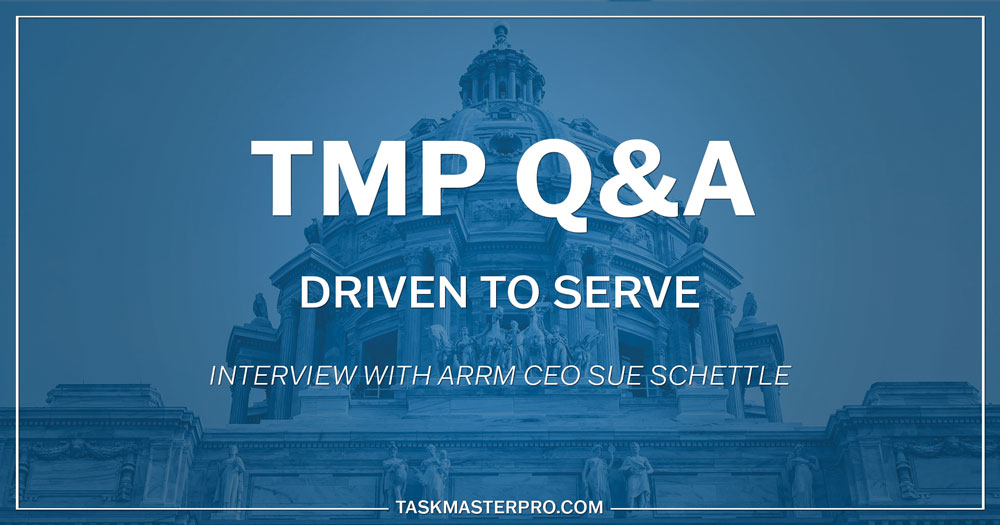In this insightful interview, Sue Schettle, the CEO of ARRM (Association of Residential Resources in Minnesota), shares her journey, challenges, and opportunities within the Intellectual and Developmental Disabilities (IDD) sector. With over two decades of experience leading nonprofits, Sue brings a unique perspective to her role at ARRM, driven by a personal connection to the cause. In this Q&A session, Sue discusses her transition into the IDD space, the complexities providers face, and ARRM’s initiatives to improve support for individuals with disabilities.
TMP: What led you to ARRM?
Sue Schettle: What led me to ARRM was my niece. I have about 20 years of experience leading nonprofits, but I was burnt out and wanted to move to a more meaningful career. When I saw the CEO opportunity at ARRM, it immediately caught my interest because of my adult niece, for whom I am a godmother.
I am very involved in her life, and she is supported in a family foster care setting. I thought I could wake up every day excited to work for my niece Heidi, her friends, and the people who support her. It filled a void and warmed my heart. So, I came to this role knowing how to run a nonprofit but also being very mission-focused on what we do at our association. It’ll be seven years this fall, and the time has flown by.
TMP: This was your first jump into the IDD space. Have you stayed engaged in these last seven years? What motivates you to work within this community?
Sue Schettle: The biggest shock to me was the complexity and regulation within the IDD human services space. Coming from the healthcare sector, where I ran a medical society for doctors, I thought the transition would be easy. However, I quickly realized how burdensome the regulations are for our providers to function daily. The amount of regulation providers have to be mindful of daily was enlightening. This keeps ARRM at the forefront for our members; we help them navigate the policies and practices of our Department of Human Services and serve as their voice to guide policy decisions.
TMP: What are the top challenges providers in Minnesota are currently facing?
Sue Schettle: The big ones are staffing, workforce management, and funding. Many professionals in the space are burning out, having worked in the sector for 20-30 years and nearing the end of their careers. We are actively trying to cultivate new leaders to bring innovative thinking to workforce challenges. Funding is also a significant issue. We have high expectations for individuals we support, wanting them to live in their homes and have the same opportunities as those without disabilities. However, there is a disconnect between funding and the actual impact on the community. Legislators sometimes focus too much on the bottom line without seeing the necessity of investing in the infrastructure to support these individuals.
TMP: Many professionals in this space have a personal connection to someone with IDD, driving their mission. Is that something you’ve seen as well?
Sue Schettle: Yes, many individuals in this field have a personal connection, whether it was their first job out of college, a family member, or another significant experience. This connection drives their passion for the work. However, those without this experience often have preconceived ideas about the sector, and we constantly educate legislators and others about the unique roles and challenges faced by direct support professionals.
TMP: Can you share some of the current initiatives ARRM is looking to advance?
Sue Schettle: One of our strategies to address workforce challenges is to explore new ways to support people. We’ve invested in developing a curriculum to teach providers, managers, and individuals about using remote support and assistive technology. Simple technologies, like monitors for refrigerators or stoves, can significantly support individuals without needing a person present. Additionally, we are focused on legislative priorities such as workforce funding and exploring alternative payment models and value-based purchasing. Minnesota hasn’t yet fully engaged with managed care plans, but we are preparing our providers for this transition by collecting meaningful data to support future decisions.
TMP: What role does data play in the future of service provision?
Sue Schettle: Data is becoming an increasingly important tool for us. We are helping our providers collect meaningful data to impact how they support individuals. This preparation is crucial for when Minnesota decides to adopt value-based purchasing or alternative payment models. We are partnering with consultants to produce data that will lead to actionable insights and better support individuals’ outcomes.
TMP: What legislative differences are you dealing with that might not be seen in other states?
Sue Schettle: Minnesota is not as advanced in data collection as some other states, but there is still an opportunity for exploration. We have made progress in securing reimbursement increases for direct support professionals within the waivered systems, ensuring inflationary adjustments every two years. This provides some stability for our providers, though it is never enough. We are also focusing on innovative solutions like technology to better utilize our workforce and support individuals according to their preferences.
TMP: Tell me about the ARRM annual conference.
Sue Schettle: The ARRM annual conference is our biggest event of the year. This year, we are expecting around 800 attendees, the highest number we’ve had. The conference attracts a range of participants, from C-suite executives to middle managers and direct support professionals. We aim to provide content that appeals to all these levels, and the event is a highlight for our staff and attendees. It’s a great opportunity for learning, networking, and celebrating the work we do.
Sue Schettle’s dedication to the IDD community shines through in her leadership at ARRM. Her connection to the cause, combined with her extensive experience in nonprofit management, drives her passion for improving the lives of individuals with disabilities. Through innovative initiatives, legislative advocacy, and a focus on data-driven approaches, Sue and ARRM are making significant strides in addressing the challenges faced by providers and enhancing the support available to those in need. The ARRM annual conference exemplifies the organization’s commitment to fostering collaboration and sharing best practices within the community.

